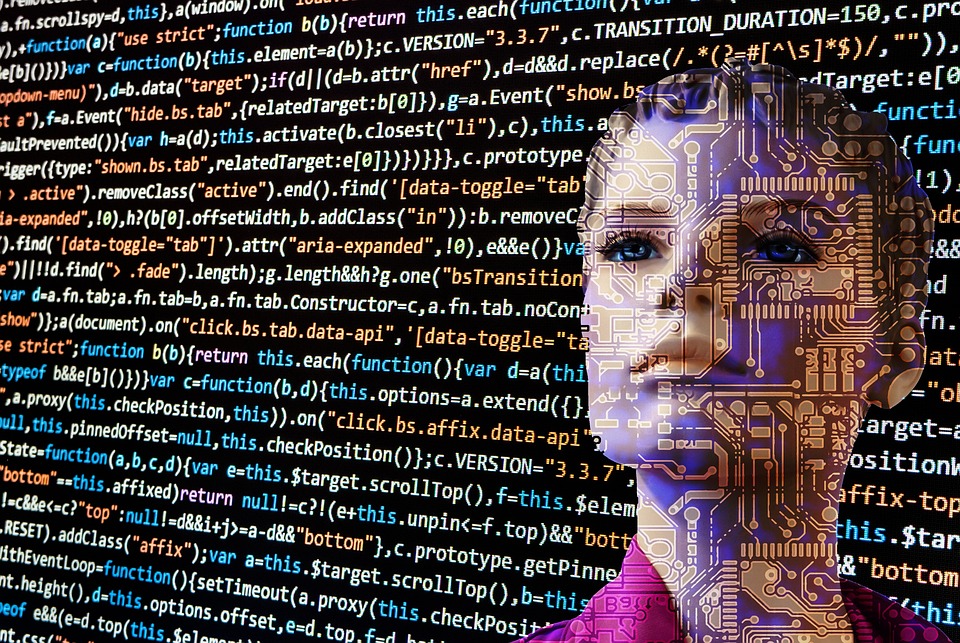The role of artificial intelligence in the healthcare sector
The health sector is constantly in flux as researchers and scientists work to develop new treatments, medications, and technologies that can improve the lives of patients around the world.
Artificial intelligence (AI) has grown exponentially in the past few years. AI is now commonly used in healthcare to improve diagnostic capabilities and streamline administrative tasks. Despite this progress, the full potential of AI in healthcare is still being realized.
According to recent studies, AI has the potential to revolutionize healthcare by improving data accuracy and providing cost-effective solutions for diagnosing and treating patients. And with its ability to ingest vast amounts of data and respond rapidly to changing circumstances, AI can provide a level of accuracy and efficiency that current systems simply cannot.
Read on to explore how AI is being used in the healthcare sector and how it will continue to play a critical role in shaping the future of medicine and healthcare delivery.
- Improving diagnostics and treatment decisions
AI in healthcare can help doctors make precise, accurate diagnoses and treatment decisions. AI systems can analyze vast amounts of information quickly and accurately and identify correlations and anomalies. It can also provide guidance on treatments and medications based on a patient’s history and current medical needs.
We recommend health care professionals enroll in an AI health course to stay abreast of the latest developments. This program covers key topics such as machine learning, neural networks, and deep learning. This will help them make better use of AI in their practices and help improve patient care.
Furthermore, AI can assist in diagnosing rare diseases, providing personalized treatments, and suggesting preventive measures.
- Streamlining administrative tasks
AI is also being used to streamline administrative tasks in healthcare settings and help providers save time and resources.
AI-enabled chatbots can be used to answer common patient inquiries, freeing up medical staff for tasks requiring more specialized skill sets. AI can also quickly generate accurate medical information, improving accuracy and reducing the time it would take to look up data and compile reports manually. For instance, AI can quickly analyze images and identify anomalies, helping doctors diagnose illnesses and develop treatment plans quickly.
Moreover, AI can help identify gaps in care, such as missed appointments and follow-up treatments, and alert medical staff to take corrective action. This helps to ensure that patients receive the care they need on time and improves patient satisfaction.
- Advancing drug discovery and development
AI in healthcare has also been instrumental in advancing drug discovery and development.
AI-enabled systems can analyze data from clinical trials more quickly and accurately than humans and identify potential drug targets. This can help reduce the cost of drug development and the time it takes to bring drugs to market.
AI is also being used to improve the accuracy of clinical trials by tracking patient progress and detecting adverse reactions more quickly. This helps to ensure that drugs are safe and effective when they reach the market. For instance, AI-enabled systems can predict which drugs are most likely to be successful in clinical trials, allowing researchers to focus their efforts on the most promising candidates.
Despite all of these advances, the full potential of AI in healthcare is yet to be realized. As technology continues to advance, so does the potential for AI to revolutionize healthcare.
As research and development in this field continue to grow, AI will be able to play an even more significant role in the healthcare sector.
- Facilitating collaboration between healthcare providers and researchers
You cannot ignore the potential of AI to facilitate collaboration between healthcare providers and researchers.
The sole purpose of AI is to improve how healthcare providers manage their patients’ data. AI-driven systems can create detailed health records, allowing medical professionals and researchers to access a patient’s history quickly and accurately. This helps to improve the accuracy of diagnoses and treatment decisions, as well as facilitate research into better treatments.
AI can also help to identify correlations between different diseases and treatments, which could lead to more effective preventive measures and treatments.
By leveraging AI, healthcare providers and researchers can work together to improve patient care. This collaboration could eventually lead to improved patient outcomes, better treatments, and lower costs.
- Developing new tools and technologies to improve patient care
In recent years, AI has developed various new tools and technologies to improve patient care.
For example, voice-enabled devices such as Amazon Alexa and Google Home are used in healthcare settings to facilitate communication between patients and caregivers. This helps to reduce errors and improve patient satisfaction.
Furthermore, AI-enabled virtual assistants track patient data, monitor vital signs, and provide personalized care. This helps healthcare providers stay informed on their patients’ conditions and provide more tailored treatments.
AI-enabled technologies are becoming increasingly important in healthcare, and their potential for improving patient care is considerable.
- The future of AI in healthcare
The potential applications of AI in healthcare are endless, and the technology is already making a huge impact on the sector.
In the future, AI-enabled systems can process large data sets and provide advanced insights into patient care. This will help healthcare providers to improve their decision-making and make more accurate diagnoses.
AI-enabled systems may also automate routine tasks, freeing healthcare staff to focus on more complex issues. As technology continues to evolve, AI will become an indispensable part of healthcare.
Conclusion
AI is one of the most promising technologies in healthcare today. By leveraging AI, healthcare providers and researchers can work together to improve patient care, develop new tools and technologies, and facilitate collaboration between providers. This could lead to improved patient outcomes, better treatments, and lower costs. As technology evolves, AI will play an increasingly important role in the healthcare sector.
We are only beginning to unlock the potential of AI in healthcare, and the future looks very promising. The possibilities are endless, and AI-enabled systems are already revolutionizing healthcare delivery. With continued research and development, AI can continue to play a major role in improving healthcare outcomes.





Pingback: Identity Document Scanning: Witnessing the Quantum Leap from Photocopies to Secure Authentication